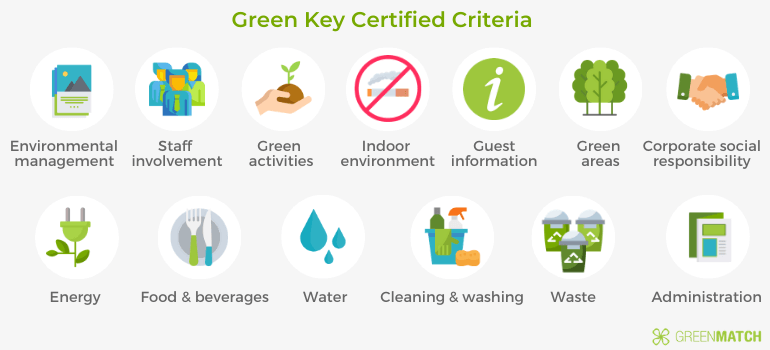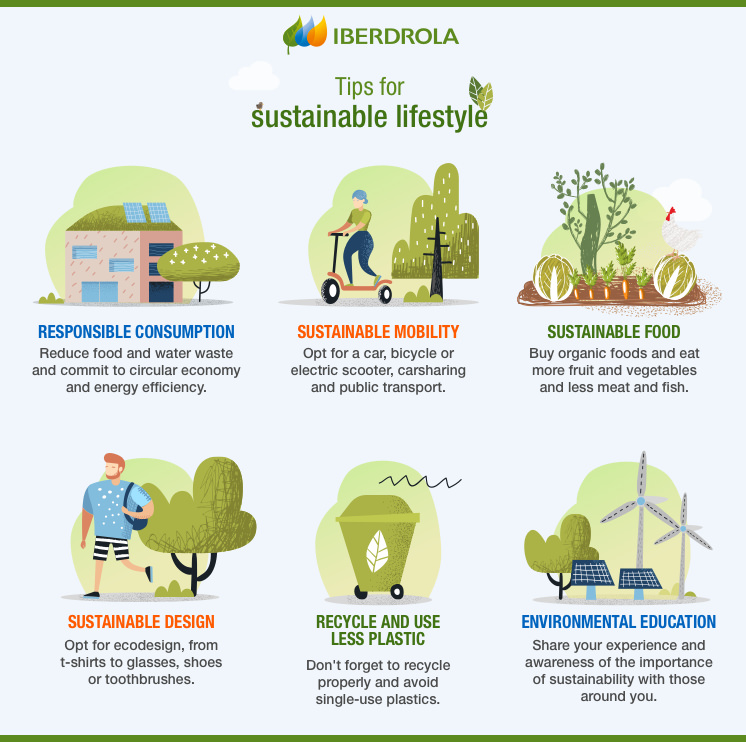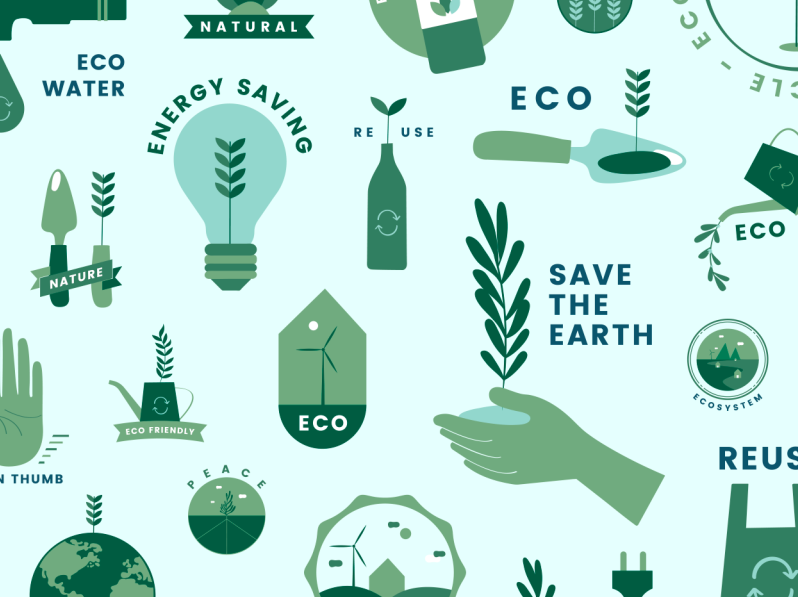
Are you curious about what an eco-friendly lifestyle entails? Look no further than Nelly’s Life, a blog that offers a wealth of inspiration and guidance on intentional living. Nelly Simpson, a storyteller and dedicated training nutritionist, shares her personal journey from a life burdened by excess and unhappiness to a life of purpose, joy, and wellness through minimalism and veganism. On NellysLife.com, you will find practical advice, personal stories, and thought-provoking insights on decluttering, plant-based recipes, nutrition tips, and the ethical and environmental considerations of this lifestyle. Dive into the vibrant community at Nelly’s Life and start your own transformative adventure towards a life of simplicity, well-being, and making conscious choices that benefit both yourself and the planet.

Table of Contents
What is Eco Friendly Lifestyle
An eco-friendly lifestyle refers to a way of living that prioritizes sustainable practices and conscious choices with the aim of minimizing harm to the environment. It involves adopting habits and making decisions that reduce our carbon footprint, conserve resources, and promote the well-being of the planet.
This lifestyle is rooted in the understanding that our actions have a significant impact on the environment, and by making intentional choices, we can contribute to a healthier and more sustainable planet for future generations.
Understanding Eco Friendly Lifestyle
Definition of eco friendly lifestyle
The term “eco-friendly” is an abbreviation for “ecologically friendly,” and it simply means being environmentally friendly or sustainable. An eco-friendly lifestyle encompasses a range of practices and decisions that prioritize the protection of the natural world. It involves being mindful of our consumption habits, reducing waste, conserving energy and water, supporting sustainable businesses, and making choices that have a positive impact on the environment.
Principles of eco friendly lifestyle
The principles of an eco-friendly lifestyle are based on the idea of living in harmony with nature and preserving the delicate balance of ecosystems. Some key principles include:
- Environmental consciousness: Being aware of how our actions impact the environment and making choices that minimize harm.
- Sustainable consumption: Opting for products and services that have a lower environmental impact, such as using reusable and recyclable materials.
- Conservation of resources: Making efforts to conserve energy, water, and other natural resources, reducing waste, and promoting recycling.
- Support for sustainable practices: Choosing to support businesses and organizations that prioritize sustainability and ethical practices.
- Education and awareness: Continually seeking knowledge about environmental issues and sharing that knowledge with others to create a ripple effect of change.
Importance of eco-friendly lifestyle
Adopting an eco-friendly lifestyle is crucial for several reasons. Firstly, our planet is facing numerous environmental challenges such as climate change, deforestation, pollution, and depletion of natural resources. By making sustainable choices, we can actively contribute to mitigating these issues and preserving the Earth for future generations.
Additionally, an eco-friendly lifestyle also benefits our own health and well-being. By reducing exposure to harmful chemicals and toxins, practicing sustainable eating habits, and living in a clean and healthy environment, we can improve the quality of our lives and promote overall wellness.
Lastly, embracing an eco-friendly lifestyle allows us to be more mindful of our consumption habits and make choices that align with our values. It encourages a sense of responsibility and connection to the natural world, fostering a deep appreciation for the beauty and diversity of our planet.
Benefits of Eco Friendly Lifestyle
Adopting an eco-friendly lifestyle has numerous benefits, not only for the environment but also for our own well-being and the economy.
Environmental Benefits
- Reduction of carbon footprint: By conserving energy, recycling, and using sustainable transportation, we can significantly reduce our carbon emissions, helping to combat climate change.
- Preservation of natural resources: An eco-friendly lifestyle involves minimizing waste and practicing resource conservation, leading to the preservation of forests, water sources, and other essential ecosystems.
- Mitigation of pollution: By choosing sustainable products and practices, we can reduce pollution levels, such as air and water pollution, and protect the health of both humans and wildlife.
Health Benefits
- Improved indoor air quality: Eco-friendly practices, such as using natural cleaning products and improving ventilation, can enhance indoor air quality, reducing the risk of respiratory problems and allergies.
- Reduced exposure to toxins: By opting for organic and chemical-free products, we can minimize our exposure to harmful toxins found in conventional products, leading to better overall health.
- Healthy eating habits: Embracing a plant-based or organic diet can provide a range of health benefits, including reduced risk of chronic diseases and increased intake of essential nutrients.
Economic Benefits
- Cost savings: Adopting energy-efficient practices, such as using LED light bulbs and improving insulation, can significantly reduce energy bills and save money in the long run.
- Job creation: The transition to a more sustainable economy creates employment opportunities, especially in sectors such as renewable energy, green construction, and sustainable agriculture.
- Long-term sustainability: By preserving natural resources and reducing waste, an eco-friendly lifestyle promotes long-term economic stability by ensuring the availability of resources for future generations.
How to Adopt an Eco Friendly Lifestyle
Adopting an eco-friendly lifestyle does not have to be a daunting task. By making small, sustainable changes to our daily routines, we can gradually transition to a more environmentally conscious way of living. Here are some practical steps to consider:
Reduce, Reuse, and Recycle
One of the fundamental principles of an eco-friendly lifestyle is the mantra of “reduce, reuse, and recycle.” This means minimizing our consumption, reusing items whenever possible, and properly recycling materials to divert waste from landfills.
To reduce consumption, think critically about your purchases and consider if you truly need the item. Embrace minimalist living by decluttering and only keeping what adds value and joy to your life.
When you do need to make a purchase, opt for high-quality, durable products that can be reused or repurposed. Plastic bags and single-use items should be avoided whenever possible.
Lastly, implement a recycling system in your home. Familiarize yourself with local recycling guidelines and ensure that items are sorted correctly for proper disposal.
Conserve Energy and Water
Conserving energy and water is essential for reducing our carbon footprint and preserving vital resources. There are several ways to achieve this:
-
Use energy-efficient appliances: Replace outdated appliances with energy-efficient models, such as those with ENERGY STAR certification. These appliances use less electricity, saving both money and energy.
-
Unplug electronics when not in use: Many electronic devices continue to draw power even when they are turned off. Unplugging them or using power strips can help minimize energy waste.
-
Optimize heating and cooling: Insulate your home properly to prevent heat loss or gain, and adjust your thermostat to conserve energy. Consider alternative heating and cooling methods, such as using fans or natural ventilation whenever possible.
-
Install water-saving fixtures: Install low-flow showerheads, faucets, and toilets to reduce water consumption. Fix any leaks promptly to prevent water wastage.
Use Sustainable Transportation
Transportation is a significant contributor to greenhouse gas emissions. By choosing sustainable transportation options, we can minimize our impact on the environment. Consider the following:
-
Walk or bike: Whenever possible, opt for walking or biking instead of driving, especially for short distances. Not only is it environmentally friendly, but it also promotes physical activity and personal health.
-
Use public transportation: Utilize public transportation, such as buses and trains, which have a lower carbon footprint compared to individual cars. Carpooling or ridesharing with others can also reduce the number of vehicles on the road.
-
Choose fuel-efficient vehicles: If owning a car is necessary, opt for fuel-efficient or hybrid vehicles that consume less gasoline and produce fewer emissions.
-
Plan efficient routes: Combine multiple errands into one trip to minimize mileage and fuel consumption. Take advantage of technology to plan the most efficient routes.
Choose Eco Friendly Products
Making conscious choices about the products we use can have a significant impact on the environment. Consider the following guidelines when selecting products:
-
Look for eco-labels and certifications: Labels like USDA Organic, Fair Trade, and Forest Stewardship Council (FSC) indicate that a product meets specific environmental and ethical standards.
-
Avoid single-use plastics: Opt for reusable alternatives to single-use plastics, such as shopping bags, water bottles, and food containers. Choose products made from sustainable materials like glass, stainless steel, or bamboo.
-
Use environmentally friendly cleaning and personal care products: Choose cleaning products that are biodegradable and free from harsh chemicals. Look for natural and organic options for personal care items like shampoo, soap, and cosmetics.
-
Support ethical and sustainable brands: Research and choose brands that prioritize sustainability, ethical sourcing, and fair labor practices. This supports businesses that align with your values and encourages others to follow suit.
Eat Sustainable and Organic Foods
The food we consume has a significant impact on the environment. Embracing sustainable and organic food choices can help minimize environmental harm and promote better health. Consider the following practices:
-
Embrace a plant-based or vegetarian diet: Reducing or eliminating animal products from our diets can significantly reduce greenhouse gas emissions, land and water use, and deforestation associated with animal agriculture. Include more plant-based proteins like legumes, nuts, and seeds.
-
Choose organic and locally sourced foods: Organic farming methods promote soil health, biodiversity, and minimize the use of synthetic pesticides and fertilizers. Locally sourced foods reduce transportation emissions and support local farmers.
-
Reduce food waste: Plan meals, store food properly, and repurpose leftovers to minimize waste. Compost food scraps to divert them from landfills and create nutrient-rich soil.
Learn to Compost
Composting is a simple and effective way to reduce waste and create nutrient-rich soil. It involves the decomposition of organic materials like fruit and vegetable scraps, coffee grounds, yard waste, and paper products. By composting, you divert valuable resources from landfills and create a natural fertilizer for your garden or potted plants. Research composting methods suitable for your living situation and start composting today.

Eco Friendly Home
Creating an eco-friendly home involves implementing sustainable practices in various aspects of your living environment. Consider the following strategies:
Green Building and Renovation
When constructing or renovating your home, consider green building practices. This includes using energy-efficient materials, sustainable insulation, and environmentally friendly construction techniques. Incorporate passive design elements like proper insulation, natural lighting, and efficient ventilation to reduce the need for heating and cooling.
Energy Efficient Appliances
Choose energy-efficient appliances for your home, such as refrigerators, washing machines, and air conditioning units. Look for ENERGY STAR certification, as these appliances are designed to conserve energy and reduce utility bills. Be mindful of energy consumption habits, such as turning off lights and unplugging electronics when not in use, to further reduce energy waste.
Water Conservation
Implement water-saving measures to reduce water consumption in your home. Install low-flow fixtures, such as toilets and showerheads, and fix leaks promptly. Consider installing rainwater harvesting systems to collect and reuse rainwater for tasks like watering plants and flushing toilets. Use water wisely by opting for shorter showers, not leaving taps running, and only running washing machines and dishwashers with full loads.
Use of Renewable Energy
Consider utilizing renewable energy sources to power your home. Solar panels, wind turbines, and geothermal systems offer clean and sustainable alternatives to fossil fuel-based electricity. Invest in renewable energy technologies that are suitable for your geographic location and energy needs. These systems not only reduce your carbon footprint but can also lead to long-term cost savings.
Eco Friendly Fashion
The fashion industry is known for its detrimental environmental impact and unethical practices. Embracing eco-friendly fashion choices can help minimize harm and promote ethical production. Consider the following strategies:
Sustainable Clothing Materials
Choose clothing made from sustainable materials, such as organic cotton, hemp, linen, and bamboo. These materials are grown without the use of harmful chemicals or genetic modification and have a lower environmental impact compared to conventional fabrics. Avoid clothing made from synthetic materials like polyester, as they release microplastics into the environment during washing.
Ethical Fashion Brands
Support clothing brands that prioritize ethical and sustainable practices. Look for certifications such as Fair Trade, which ensures fair wages and safe working conditions for garment workers. Research brands that use recycled materials, practice transparent supply chains, and implement environmentally friendly production methods.
Secondhand and Thrift Shopping
Instead of buying new clothing, consider secondhand and thrift shopping. Thrift stores, online marketplaces, and clothing swaps offer a wide variety of pre-loved clothing options. By giving these items a second life, you reduce waste and minimize the demand for new production. This practice is not only eco-friendly but also budget-friendly.

Eco Friendly Travel
Traveling can have a significant impact on the environment, but by making conscious choices, we can minimize our carbon footprint and support sustainable tourism. Consider the following practices:
Sustainable Transportation Options
When choosing transportation for travel, opt for environmentally friendly options. Use public transportation, such as buses or trains, instead of flying or driving. If flying is necessary, consider carbon offset programs to neutralize the emissions produced. Choose direct flights whenever possible, as takeoffs and landings contribute significantly to carbon emissions.
Eco Friendly Accommodations
Choose accommodations that prioritize sustainability and environmental responsibility. Look for eco-certifications and labels, such as LEED or Green Key, when selecting hotels or resorts. These certifications ensure that the establishment follows sustainable practices in energy consumption, waste management, and water conservation. Alternatively, consider eco-lodges, eco-resorts, or eco-friendly homestays that are built and operate with sustainability in mind.
Responsible Tourism Practices
Practice responsible tourism by being mindful of the impact you have on local communities and ecosystems. Respect the cultural customs and traditions of the places you visit, and support local businesses and artisans. Minimize waste by carrying reusable water bottles, avoiding single-use plastics, and properly disposing of trash. Leave natural areas as you found them, promoting the conservation of biodiversity and fragile ecosystems.
Eco Friendly Food
Our food choices have a significant impact on the environment. By embracing eco-friendly food practices, we can make a positive contribution to sustainability. Consider the following practices:
Plant-Based Diet
Reducing or eliminating animal products from our diets can have a profound impact on the environment. Animal agriculture is a major contributor to greenhouse gas emissions, deforestation, and water pollution. Choosing a plant-based or vegetarian diet can help reduce these impacts while supporting sustainable food systems.
Locally Sourced and Organic Foods
Choose locally sourced and organic foods whenever possible. Locally sourced foods have a lower carbon footprint as they require fewer transportation miles. Organic farming practices prioritize sustainable soil management, biodiversity conservation, and the avoidance of synthetic pesticides and fertilizers. Supporting local farmers and organic food producers encourages sustainable agriculture and strengthens local food systems.
Reducing Food Waste
Minimizing food waste is a crucial aspect of eco-friendly food practices. Plan meals, shop with a list, and only purchase what you need. Properly store food to extend its shelf life, and repurpose leftovers creatively. Compost food scraps to divert organic waste from landfills and create nutrient-rich soil.

Eco Friendly Consumer Choices
Making eco-friendly consumer choices helps create a demand for sustainable products and encourages businesses to prioritize environmental responsibility. Consider the following practices:
Avoiding Single-Use Plastics
Single-use plastics contribute to pollution and harm marine life. Minimize their use by carrying reusable shopping bags, water bottles, and coffee cups. Use stainless steel or glass straws instead of disposable plastic ones. Choose products packaged in eco-friendly materials and avoid excessive packaging.
Using Eco Friendly Packaging
When selecting products, choose those that use eco-friendly packaging materials. Look for packaging made from recycled materials or those that are biodegradable. Support businesses that actively work to minimize packaging waste and opt for sustainable alternatives like compostable or reusable packaging.
Supporting Sustainable Brands
Research and support brands that prioritize sustainability and ethical practices. Look for certifications such as B Corp, which verifies a company’s commitment to social and environmental responsibility. Choose products that are Fair Trade certified, ensuring fair wages and safe working conditions for producers. By supporting sustainable brands, you contribute to a greener economy and encourage others to follow suit.
Conclusion
Embracing an eco-friendly lifestyle is a powerful way to contribute to a healthier planet and secure a better future for generations to come. By adopting sustainable practices in various aspects of our lives, such as reducing waste, conserving resources, and making conscious consumer choices, we can make a positive impact on the environment, our health, and the economy.
Remember that transitioning to an eco-friendly lifestyle is a journey, and it’s important to start with small, manageable steps. Every action, no matter how small, counts towards creating a more sustainable world. Welcome to the eco-friendly community, where small changes lead to significant positive outcomes for both the planet and ourselves. Together, we can make a difference and create a more sustainable future.








